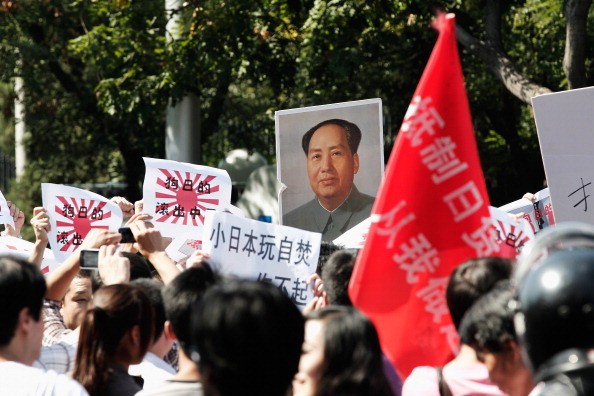China, Japan and South Korea are set to hold their first trilateral meeting in three years, ending a diplomatic stalemate due to increased tensions in the regions.
Chinese Premier Li Keqiang will attend the meeting in Seoul as part of his official visit to South Korea on Saturday, the state-run Xinhua News Agency reported on Monday.
Li will be joined by Japanese Prime Minister Shinzo Abe and South Korean President Park Geun-hye.
"Facing the complicated international situation and the weak recovery of the world economy, strengthening trilateral cooperation, maintaining regional peace and stability, and powering the economic development of Asia and the world is very important," Chinese Vice Foreign Minister Liu Zhenmin said at a press briefing on Monday afternoon.
The leaders will discuss cooperation among the three countries and exchange views on issues of common concern, followed by a joint press conference and a trilateral business summit, Liu said.
The South Korean presidential spokeswoman declined to comment on the trilateral meeting, although she did verify an upcoming meeting between South Korean and China. The Japanese government confirmed earlier this month that Abe will be attending the meeting.
Citing Chinese officials, among the topics expected to be discussed during the summit include North Korea's nuclear program and efforts to denuclearize the Korean peninsula, according to a report from the Wall Street Journal on Monday. Seoul or Tokyo has yet to announce an agenda, the report said.
The three countries began taking turns to host trilateral meetings in 2008 aimed at boosting political, economic, social and cultural ties. However, disputes regarding maritime sovereignty in the East China Sea and Shinzo Abe's visit to the Yasukuni Shrine, which houses convicted WWII war criminals, as well as his comments over Japan's actions during the war, have chilled Sino-Japanese relations, causing the trilateral meetings to be suspended in May 2012.
According to Liu, it was "a common decision" for the three countries to restart talks.
"In the past three years, China and South Korea have been actively trying to improve ties with Japan and promote trilateral cooperation. We also have taken notice that the Japanese government--including Japanese leaders--have for some time expressed a desire to improve their relations with China and South Korea," he added.
Analysts believe that current economic conditions have nudged the three governments into resuming the summit, particularly as China and Japan are seeking ways to spur growth at home.
"China's economy is at a turning point, while Japan is also very concerned about this," said Wang Shaopu, director of Center for Japan Studies at Shanghai Jiao Tong University. "Abe's support at home is falling, and he hopes that revitalizing the economy can help him regain political ground. Economic cooperation with China is key to reinvigorating Japan's economy, so we could say Japan is coming to this meeting for the money."
Liu Jiangyong, a professor with Tsinghua University, said that the summit's cancellation has caused communication mechanisms between China and Japan, while bilateral trade and investment between the two countries has plummeted.
South Korea, which was the coordinator since the last meeting in 2012, also bears responsibility to maintain the mechanism, he told Xinhua.
China, Japan and South Korea have an economic aggregate accounting for 70 percent of Asia and 20 percent for the rest of the world. In 2013, the trade volume among the three countries reached $681.4 billion, surpassing China's trade volume with the European Union and the U.S.
Closer ties between China and South Korea have also been attributed to the resumption of talks. In June 2013, President Park made her first official visit to China and met with President Xi twice in two days. Park was also among the guests at the 70th anniversary marking the end of WWII in Tiananmen Square in September this year.
China-Japan relations have also improved since the latter half 2014. In November, senior Chinese and Japanese officials met in Beijing to discuss the continuation of political, diplomatic and security dialogue and their countries' positions regarding the disputed Diaoyu Islands in the East China Sea. Xi Jinping met with Abe three days later.
In March, foreign ministers from China, Japan and South Korea held a meeting in Seoul, agreeing to work together for the early resumption of the trilateral summit.
"The resumption is in the interests of the three countries and the region as a whole. However, the result of the upcoming meeting depends on Japan's attitude, since China and the ROK will not give up their position on matters of principle, such as historical issues," said Yang Bojiang, deputy head of the Institute of Japan Study of the Chinese Academy of Social Sciences.



























